Resources
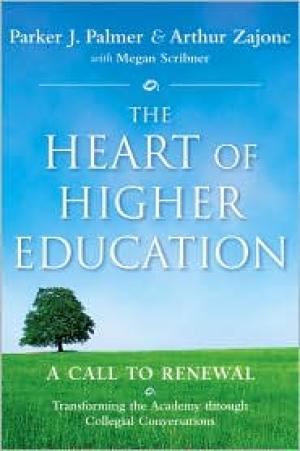
Praise for The Heart of Higher Education Palmer and Zajonc have issued a compelling call for change and renewal in higher education. They show us how colleges and universities can be transformed by taking a more integrated approach to teaching and learning that focuses on the inner lives of their students and faculty. At a moment when many are dreaming of an integrative form of higher education that unites intellectual rigor with compassion and love, Palmer and Zajonc invite us to engage in conversations designed to infuse the academy with meaning, purpose, and soul. For those who yearn to transform colleges and universities from sterile, vacuous spaces to places of hope, possibility, and respect for everything human, this is the book you have been waiting for. Parker Palmer and Arthur Zajonc call for a renewal of our commitment to inspiring deeper thinking and educating the whole person. This book should and will inspire debate about our larger purpose, about how we can go beyond the traditional silos in which we work for the sake of individual and institutional transformation. What should be at the center of our teaching and our students' learning? Palmer and Zajonc take up this simple but daunting question and provide the most solid ground yet on which to hold a conversation about the heart of our enterprise. They reimagine higher education in a way commensurate with the magnitude of our problems and offer us practical paths toward implementation. Integrative education is the most important reformation of higher learning since the rise of the modern university. This book can help us achieve it. (From the Publisher)
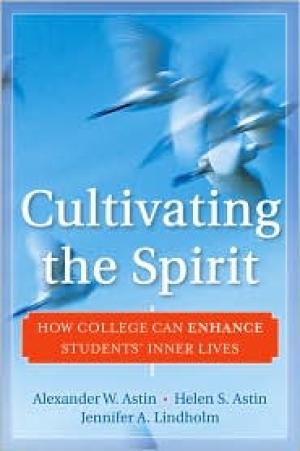
Praise for Cultivating the Spirit A groundbreaking study of the spiritual growth of college students.... The spiritual dimension of higher education has been explored from a variety of angles for the past twenty years, but not until now have we had a competent and comprehensive body of data organized around well-defined dimensions of this complex phenomenon. This is an essential book for anyone in academia who cares about the education of the whole person. An extremely important book for layperson and professional alike. A stunning wake-up call for higher education—highly recommended! Cultivating the Spirit makes a unique and important contribution to one of the least examined yet most fundamental questions about undergraduate education: how students acquire the values and convictions that help to give meaning and purpose to their lives.... The authors provide a wealth of valuable findings about this vital process and its effects on student achievement, well-being, and personal growth in college. The fruit of a decade of elegantly designed and compelling research, Cultivating the Spirit provides timely and significant data for reorienting the conversation about the relationships among intellectual inquiry, traditional academic values, and the formation of the inner life. Informative, clearly written, essential, and evocative reading for today's faculty across all institutions—public and private, secular and religious. (From the Publisher)
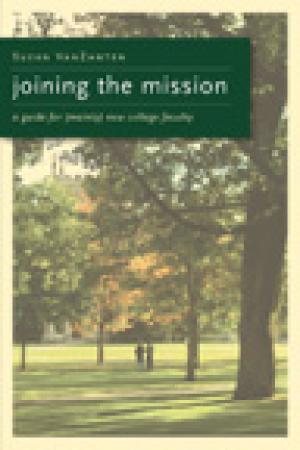
Joining the Mission is a helpful guide for new (and experienced) faculty at religious colleges and universities. Susan VanZanten here provides an orientation to the world of Christian higher education and an introduction to the academic profession of teaching, scholarship, and service, with a special emphasis on opportunities and challenges common to “mission-driven” institutions. From designing a syllabus to dealing with problem students, from working with committees to achieving a balanced life, VanZanten's guidebook will help faculty across the disciplines — Art to Zoology and every subject between — understand better what it means to pursue faithfully a vocation as professor. (From the Publisher)
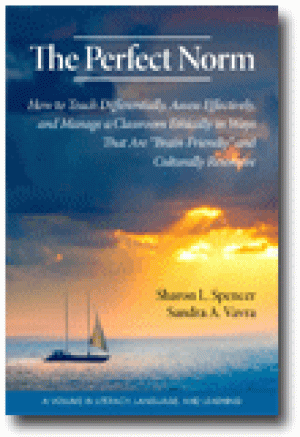
Our goal in writing this book was to validate teachers for strong efforts in their life's work. We often observe teachers' frustrations with what they perceive to be a multitude of different hot topics in education that they must attend to now, but which they expect to come and go, like the last hot topics. So, we wanted to help readers see similarities between many of these hot topics-differentiation, multiple intelligences, culturally responsive teaching, brain-friendly strategies, authentic assessment, and ethical classroom management which we feel are not flashes in the pan. And we trust that serious practitioners will not oversimplify the findings of neuroscientists and their application to education. Reading studies and books by scientists, a number of which are user-friendly, can help ensure that teachers separate the hype from credible information. We have seen this professionally judicious approach in the work of graduate students (Kolinski, 2007) in adopting brain-friendly strategies. We have intentionally packed both theoretical/research-based and practical information in this book because professional educators want to know why they should use certain approaches, models, and strategies. In turn, as professionals, we should be able to explain why we teach the way we do-not to justify, but to educate others about our knowledge-based, reflective, decision-making processes and the impact on student learning. Thus, it is important to read Chapter 1 because it lays a foundation. Each succeeding chapter (2-6) has unique and compelling twists and turns-chock full of ideas to use or to adapt. It is possible to gain lots of ideas, processes, and strategies from reading and implementing (or adapting) even one of the unit chapters, or a part of it. While some of the units are explicitly about literacy, others focus on content using reading, writing, speaking, and listening as critical in the learning process. Thus, literacy skills are reinforced and strengthened. Additionally, some of our colleagues and public school partners have given us feedback that they wanted to implement some of the units and activities themselves. So, feel free to use this book for self-exploration and professional development. (From the Publisher)
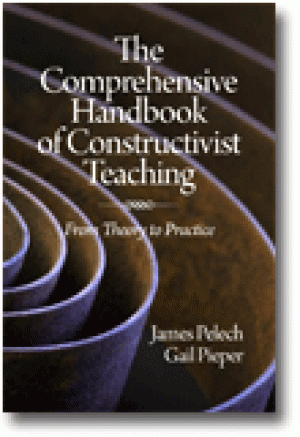
While many people talk about the Constructivist philosophy, there has not been a publication that provides a detailed description of what a Constructivist classroom sounds like and looks like. This book fills that void by examining the philosophy, translating it into teaching strategies, and providing over forty examples. These examples come from the elementary level up to and including the collegiate level, and include all content areas. These examples show how the Constructivist educator uses the linguistic mode, the visual mode, and the kinesthetic mode to create a class environment in which the Constructivist philosophy flourishes. Examples of student work are provided; the book also includes chapters on note-taking, Problem-Based Learning (PBL), action research, and other Constructivist resources. Written in user-friendly form, this book presents a concrete and step by step approach for translating the Constructivist philosophy into classroom practice. This book is intended for every Constructivist researcher, practitioner, and teacher-educator. The researcher and teacher-educator will benefit from topics such as the history of Constructivist thought, the principles of Constructivism and action research. This book is more than a list of recipes, and this will be beneficial to the practitioner. Starting with the principles of Constructivism, and bridging to four basic teaching strategies, the practitioner is guided on how to use different learning modes and meta-strategies to create a true Constructivist practice. An educator's life is made up of one's philosophy, teaching principles, daily strategies,resources, and research tools. This book provides an in-depth look, from the Constructivist perspective, at each one of these components. In every sense of the word, this book is truly comprehensive. (From the Publisher)
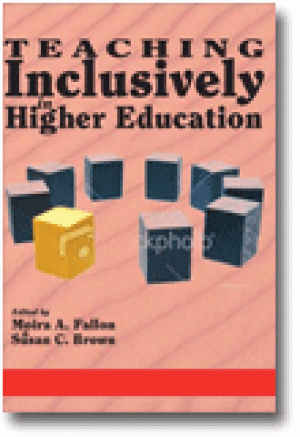
This book is designed for higher education instructors. The focus of the book is to assist all faculty instructors in higher education to better meet the needs of their student populations. It addresses the major issue of higher education teaching today: the need to reach all higher education students using active learning strategies. Higher education today is rapidly changing and faculty members are being presented with new types of students; ones who often have clear goals for bettering themselves, but at the same time lack what might have been considered to be basic skills necessary for success in a college or university setting. Instructors today must reach and bring all students into the college or university setting in an inclusive manner. The emphasis of this book is on student-focused strategies for teaching inclusively. This book will provide valuable strategies and practical techniques for instructors to develop inclusive college classrooms that promote the learning of all students. The audience targeted will be all instructors who work with higher education students, including students in community colleges and vocational institutions. The book is designed to be mainly practical instructional strategies with limited theoretical text and references. At the same time, major theories will be included to demonstrate why specific approaches are recommended. Although the authors and editors are from the field of education, the book is particularly valuable for all college instructors without a background in the discipline of education. (From the Publisher)
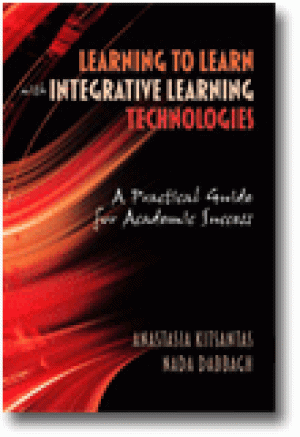
The purpose of this practical guide is to facilitate college students' academic success by fostering self-regulated learning skills or learning to learn through the use of Integrative Learning Technologies (ILT). It enables the college instructor, online instructor, instructional developer, or educator to envision, plan for, and implement customized instructional and curricular designs that foster learning to learn and motivate students to take ownership of their own learning. Specifically, this book demonstrates how college faculty who use Learning Management Systems (LMS) as well as emerging technologies such as Web 2.0 applications and social software can design learning tasks and course assignments that support and promote student: goal setting use of effective task strategies self-monitoring and self-evaluation time management help seeking motivation and affect Given the emphasis on retention of freshmen as a measure of institutional effectiveness, the focus on student success, and the increasing use of ILT in higher education, this book fulfills a dire need in the literature on the integration of technology and self-regulated learning. (From the Publisher)
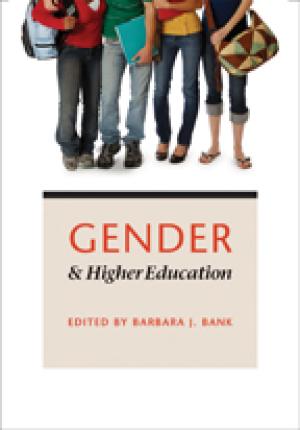
This comprehensive, encyclopedic review explores gender and its impact on American higher education across historical and cultural contexts. Challenging recent claims that gender inequities in U.S. higher education no longer exist, the contributors—leading experts in the field—reveal the many ways in which gender is embedded in the educational practices, curriculum, institutional structures, and governance of colleges and universities. This work features the latest theories, scholarship, research, and debates related to gender and higher education, including institutional diversity; academic majors and programs; extracurricular organizations such as sororities, fraternities, and women's centers; affirmative action and other higher educational policies; and a range of theories—from liberal feminism to postmodern queer theory—that have been used to analyze and explain the ways in which gender in academe is constructed. Theoretically grounded and based on the newest research, Gender and Higher Education provides an excellent overview for students of higher education, gender studies, and sociology, as well as for anyone interested in the current state of scholarship and practice. (From the Publisher)
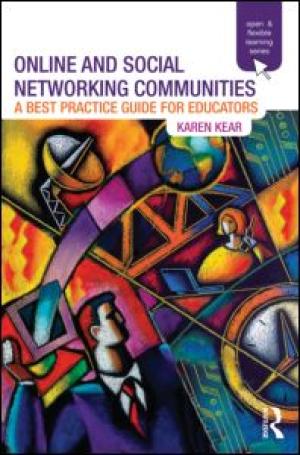
Online and Social Networking Communities is a professional guide written for educational practitioners and trainers who wish to use online communication tools effectively in their teaching. Focusing on the student experience of learning in online communities, it addresses ‘web 2.0’ and other ‘social software’ tools and considers the role these technologies play in supporting student learning and building learning communities. The guide offers: • real-world case studies and quality research • must-have lists of useful resources • guidance on building and supporting online learning communities • discussion of how collaborative learning can be assessed • coverage of wikis, forums, blogging, instant messaging, Second Life, Twitter, desktop videoconferencing and social networking sites such as Facebook. Online and Social Networking Communities helps educators and trainers develop a critical approach by exploring online learning from both the student’s and educator’s perspective. This practical guide provides the tools to help develop confident and thoughtful online educators, able to create successful and enjoyable learning experiences for their students. (From the Publisher)
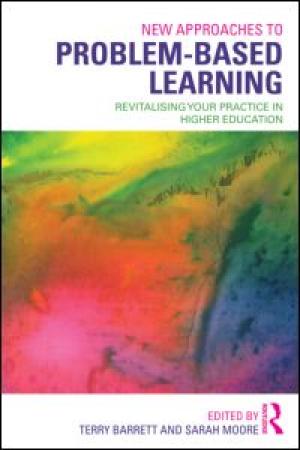
Problem-based learning (PBL) is a pedagogical approach that has the capacity to create vibrant and active learning environments in higher education. However, both experienced PBL practitioners and those new to PBL often find themselves looking for guidance on how to engage and energise a PBL curriculum. New Approaches to Problem-based Learning: Revitalising your Practice in Higher Education provides that guidance from a range of different, complementary perspectives. Leading practitioners in the field as well as new voices in PBL teaching and learning have collaborated to produce this text. Each chapter provides practical and experienced accounts of issues and ideas for PBL, as well as a strong theoretical and evidence base. Whether you are an experienced PBL practitioner, or new to the processes and principles of PBL, this book will help you to find ways of revitalising and enriching your practice and of enhancing the learning experience in a range of higher education contexts. (From the Publisher)